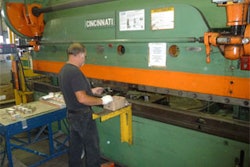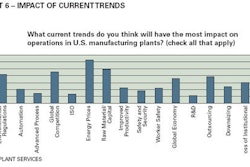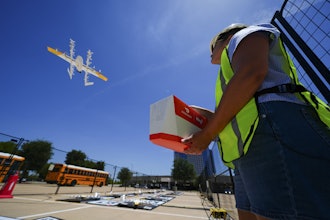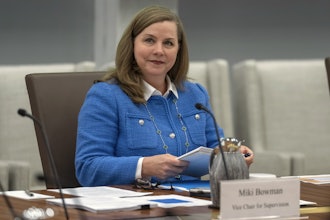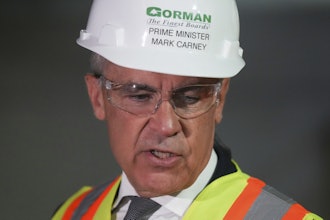TOPEKA, Kan. (AP) — Kansas legislators have jumped into a tax dispute over refineries and fertilizer and cement plants, but critics worry that helping their operators could pinch local governments and hurt homeowners and small businesses.
A bill before the Kansas House would revise a state law on how counties value machinery and equipment in complex manufacturing plants when levying property taxes. The issue is at the heart of a state Court of Appeals case pitting Montgomery County in southeast Kansas against Coffeyville Resources Nitrogen Fertilizers over the company's plant there.
Business groups are watching the legislation. Supporters contend the bill would ensure that machinery is valued consistently across the state, preventing counties from overtaxing it and discouraging companies from expanding or moving to Kansas.
"If the bill doesn't pass, it's just going to be detrimental to the business climate in the state," Gina Bowman, a vice president for CVR Energy Inc., of Sugarland, Texas, the parent company for Coffeyville Resources, said Monday.
The House Taxation Committee approved the bill last week, sending it to the full chamber for debate, possibly later this week.
Some local officials and legislators warn the measure could provide big property tax breaks not only for refinery operators and manufacturing companies but for utilities, railroads and grain elevators. Critics contend the measure will take hundreds of millions of dollars' worth of property off state and local tax rolls — forcing local governments either to cut services or raise levies on homes and other business property.
The Kansas Association of Counties said in a recent analysis that all counties likely would see their total assessed property values lowered at least a little, but four — Butler, McPherson, Montgomery and Neosho — could see values drop 10 percent or more. For Montgomery County, the figure is more than 54 percent.
"I'm not sure they really realize the fiscal impact it might have," Montgomery County Appraiser Georgianna Rail said of legislators.
Taxation Committee Chairman Richard Carlson, a St. Marys Republican, said some critics are overstating the potential impact but acknowledged "there are a few counties that could be significantly affected."
The value placed by the county on the Coffeyville fertilizer plant became an issue in 2008, when a 10-year exemption designed to encourage its refitting expired. The county concluded that much of the machinery essentially represented fixtures, making it part of the real estate, subjecting it to higher taxes.
Bowman said the difference was worth as much as $9 million in taxes for 2008. Operators valued the plant at $26 million, and the county's figure exceeded $300 million. The Court of Tax Appeals, which reviews such disputes, sided with the county, prompting the company to go to the state Court of Appeals.
A similar dispute pits the Ash Grove Cement Co. against Neosho County over the firm's plant in Chanute and is still before the tax court.
Opponents argue that many companies will force counties to redo their valuations of machinery and equipment should the bill pass. Meanwhile, backers say leaving the law unchanged will encourage counties to become more aggressive in taxing machinery and equipment.
The state has a stake because it imposes its own property tax levies for public schools and building projects. Last month, the Department of Revenue estimated that under the bill, the state would lose $12.5 million in property tax revenues for the fiscal year beginning in July.
"I don't think anybody on that committee is expert enough to understand exactly all the implications of that bill," Rep. Tom Sawyer of Wichita, the ranking Democrat on the House tax panel.
However, the state has moved previously to cut taxes on business machinery to make Kansas more competitive. In 2006, at the urging of then-Democratic Gov. Kathleen Sebelius, legislators said equipment and machinery purchased new after that year would be exempt from property taxes.
Also, the state constitution says property within a class, such as machinery and equipment, must be "assessed uniformly." A legislative audit released last month reviewed tax the treatment of ethanol plants in three counties and concluded they weren't being handled consistently — raising issues about what's happening statewide.
"They see a county next door doing something, and then they get an idea and it starts spreading," said Kent Eckles, a Kansas Chamber of Commerce vice president.




